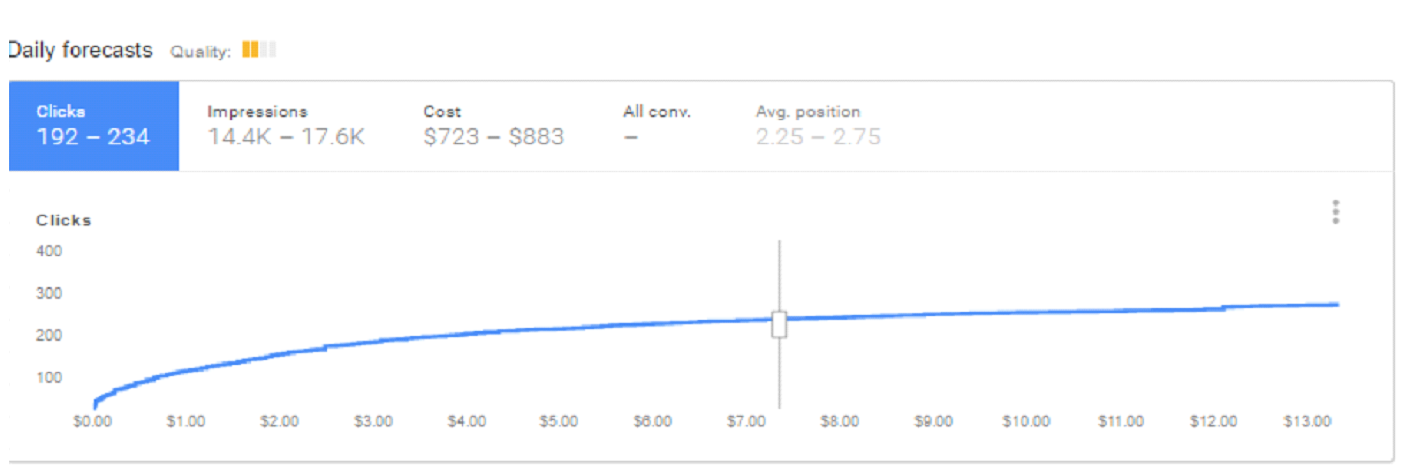Pay-per-click (PPC) advertising is one of the most simple ways to promote your business online. In a nutshell, a PPC campaign is an online ad that charges you based on how many people click on your ad. While the concept sounds straightforward, launching a successful PPC campaign can sometimes feel like you are trying to catch a unicorn. Navigating the waters of how to get the biggest bang for your buck can be intimidating at first — but not to fret! In this post, we will demystify how to set up a PPC campaign.
This introduction to PPC for MSPs will cover all aspects of how to set up a PPC campaign, including:
- Why PPC is an effective tactic to include in your MSP marketing plan,
- How to research keywords,
- What tools to use to maximize your PPC campaign results, and
- Where to start with your budget.
Why PPC?
If you are on the fence about PPC, let us give you the lowdown on why PPC is beneficial to your business. The following are four reasons why PPC is an essential item for your MSP marketing toolkit.
- You only pay when your ad is clicked — which is different from traditional advertising where you pay a fixed amount regardless of how many people see or engage with your ad.
- You are in the driver’s seat when it comes to setting a budget and controlling your costs. You can set a daily amount for your PPC budget and can change it at any time.
- You can target your ads to a specific prospect at a specific time. PPC offers advanced location targeting, device-specific preferences, and timing and delivery options to show your target consumers an ad when they are most likely to click or buy.
- You can learn how to improve your other MSP digital marketing channels with the data from PPC. Your PPC campaigns can improve your SEO by telling you which keywords are performing the best. You can also test new services or offerings by using PPC to gauge interest and collect feedback.
How to Research Keywords
Successful PPC campaigns are very dependent on your ability to select the right keywords. Which means you need to understand how your target market is searching for your services. You then need to explore the competitiveness of the space and the volume of searches for your keywords. These are the initial steps in how to setup a PPC campaign.
When researching your keywords, there are three things you need to consider:
- Search Volume: the number of search queries tells you how interested people are in the topic.
- Competition Levels: selecting the best keywords to target will depend on the difficulty or competition level, which will also inform the cost of your ad.
- Suggested Bid: this is the amount you would expect to pay for your keyword when clicked in an ad in the open marketplace.
The keyword sweet spot is any word or phrase that is associated with your business and has high search volume, but low competition level (and ideally a suggested bid you can stomach paying).
When conducting keyword research, we suggest you place all your potential keywords into a spreadsheet to track: average monthly searches, competition level, suggested bid, estimated impressions, estimated cost, estimated click-through rate, average cost per click and average position.
So it would look like this:
If you use Google Keyword Planner, you can also build a forecast where you estimate the cost of your campaign based on your keyword data. Here is an example of a forecast graph from Google Keyword Planner based on the number of clicks we estimated for a given cost-per-click (CPC). You can then drag the slider on the interface to find where the graph peaks for you, in terms of the most cost effective CPC for the clicks (see below).
Helpful PPC Tools
When digging into your keyword research, there are a number of useful tools that will provide you with insights to set up an effective PPC campaign. We recommend the following three:
- Keyword.io: A free keyword research tool that provides you with hundreds of keyword suggestions at no cost. It is great to use when you are just starting out and not yet sure of what keywords to target. Keyword.io gives you the ability to take a shotgun approach and cover all your bases of possible search terms.
- SEMrush: Another great keyword tool that offers lots of information and insight for free. It showcases lots of competitive information and also gives you the option to upgrade to a paid account for more features and functionality.
- Google Keyword Planner: While valuable in its own right Google’s Keyword Planner has its flaws in terms of depth and accuracy. That being said, it is a beneficial tool to lay the groundwork for your PPC campaigns.
Setting Your Initial Budget
Your budget will always depend on your business. For starters, it is important to know how much a conversion is worth to you — and what makes sense as a conversion goal for your business. A conversion can be anything from a phone call to a newsletter sign-up or a purchase — and PPC can help drive all of these. However, it is important to keep in mind the cost against the benefit.
In setting your budget, you will first want to be clear on how much you are willing to pay for a conversion. For example, if your ad is costing you $10 per click and your conversion is only worth $5 to your business, you likely wouldn’t want to run that ad campaign. However, if your average sale is worth $100, it would likely be worthwhile to pay $20 to $30 for an acquisition through PPC. These costs will be different for every MSP business, but it is important to understand the money you’re investing in your PPC campaigns.
As a general rule, when you are initially testing the waters of PPC you’ll want to run a test month with a large spend to collect as much data as you can. The average spend for your first month can be anywhere from about $1,500 to $5,000. During that period, you will want to run a variety of ads on multiple platforms. This will provide you with ample information so that you can refine your ads based on what is working for you. Be careful to keep an eye on conversions — not just clicks — so that you can invest more in the PPC ads that are delivering the most value to your business.
PPC is an iterative process and there is a science and an art to managing PPC campaigns. Many people make the mistake of setting and forgetting their PPC campaigns without ongoing maintenance. The most effective campaigns are continuously monitored and updated based on data collected from past ad performance.
Next Steps
Do you have lingering questions on how to set up a PPC campaign? Not to worry. This is the first post in a series on PPC for MSPs. Stay tuned for our next post on the best PPC platforms to use. If you are eager for further assistance, don’t hesitate to contact us to help you give your marketing efforts a boost through PPC.
502.822.6695
team@guardianowldigital.com





Recent Comments